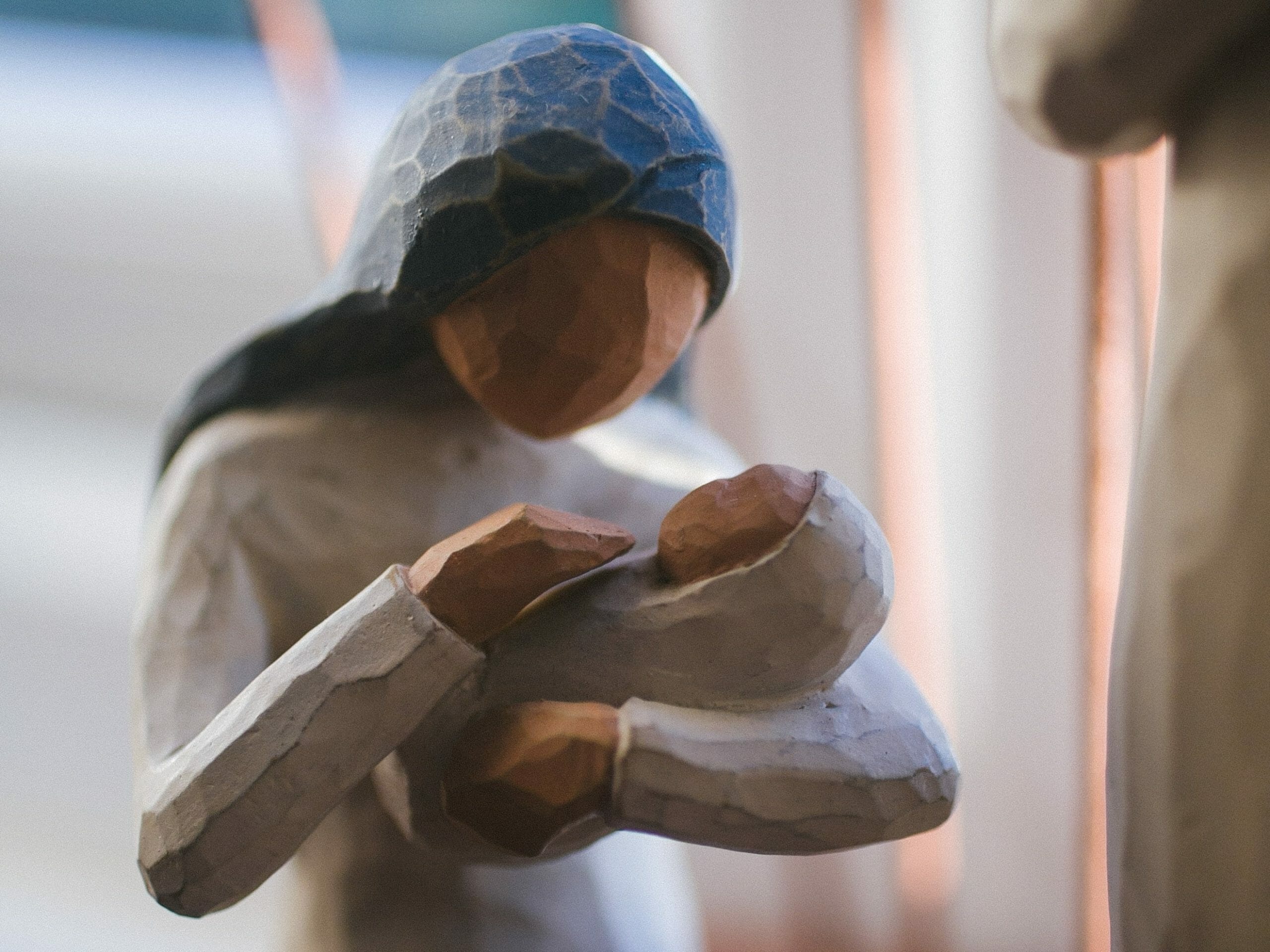
Photo by Phil Hearing on Unsplash
Living into the hope of Christmas this year

Claire Hein Blanton
December 14, 2020
The holiday season is upon us and I have no idea how our family is going to celebrate. We are already turning down invitations to large family gatherings. Our church will likely not be doing normal Advent services, and, even if they were, we would be joining them virtually. Lighting virtual candles for a virtual processional does not feel the same. But even beyond these relatively easy pandemic choices, our lives are more complicated.
Pregnancy and a global pandemic are not meant to go together. Granted, I would still choose to be pregnant every time, but there’s a new host of concerns this time. Not only is my family concerned about the mundane health risks – too much caffeine, raw meat and fish, hot dogs, etc. – but we have now added the layer of concern about me becoming sick from the coronavirus. A series of studies have indicated that pregnant women with COVID-19 are more likely to end up in the intensive care unit and be put on mechanical ventilation than non-pregnant women with the virus.
Additionally, as my baby grows (as almost anyone who has been pregnant will tell you), my organs become even more compressed—and that is particularly risky with a disease that attacks the pulmonary system. At Christmas, thirty weeks into this pregnancy, we cannot take unnecessary risks. My husband and I are already discussing whether that means foregoing normal, small family gatherings with our family members that are no longer working from home, or the ones that have attended Christmas parties. This will surely cause some level of tension in our families. Merry Christmas?
Yet being pregnant at Christmas, especially this year, feels in a strange way to be a sacred act. We made the conscious decision to try and expand our family in the midst of great uncertainty. For me especially, this pregnancy is a very real sign of hope after two years of infertility, miscarriage, my mother’s death, and then 2020 in general. Advent is the season of hope, regardless of how we will be able to celebrate it. Our family will retell the Christmas story and the expectation that God remains with us even in the midst of despair and turmoil.
Being pregnant at Christmas, especially this year, feels in a strange way to be a sacred act. We made the conscious decision to try and expand our family in the midst of great uncertainty. For me especially, this pregnancy is a very real sign of hope after two years of infertility, miscarriage, my mother’s death, and then 2020 in general. Advent is the season of hope, regardless of how we will be able to celebrate it. Our family will retell the Christmas story and the expectation that God remains with us even in the midst of despair and turmoil.
Mary and Joseph spent that first Christmas alone, albeit for different reasons than we are experiencing today. We all know the story by heart. Joseph and his very pregnant and betrothed wife show up in his hometown. There would presumably have been multiple family members there that should have given them a place to stay, yet the pair find themselves only able to find lodging in the stable of the inn. Joseph’s family rejects them and yet, out of that rejection – so emblematic of the relationship between humanity and God – Christ is born. Hope enters the world.
This December many of us will likely “reject” our family gatherings out of an abundance of caution for those who are high risk (and thank you for doing that!) This will be hard. There are so many who have already lost loved ones during this pandemic or are already feeling the consequences of living in solitude.
And yet –
In our deconstructed holidays, we still find hope. A hope that is not born out of large parties but born out of rejection in a stable to a young, unmarried woman. We choose to be safe and we choose hope and there is a great sense of true joy in choosing to live into the hope of Christmas this year.
Claire Hein Blanton is an ordained Baptist minister in Houston, Texas. She is currently studying for her PhD in systematic theology and ethics from the University of Aberdeen.
The views expressed are those of the author and not necessarily those of American Baptist Home Mission Societies.


